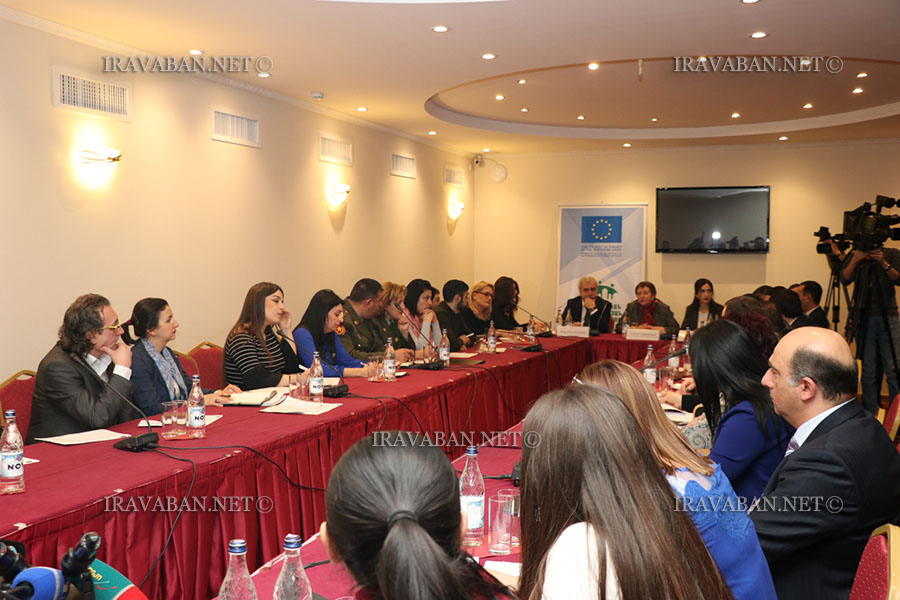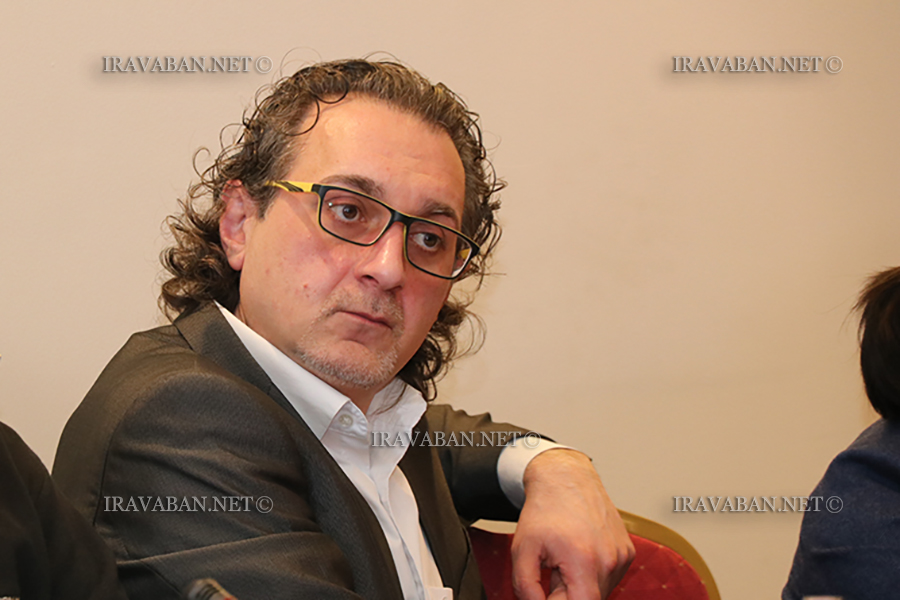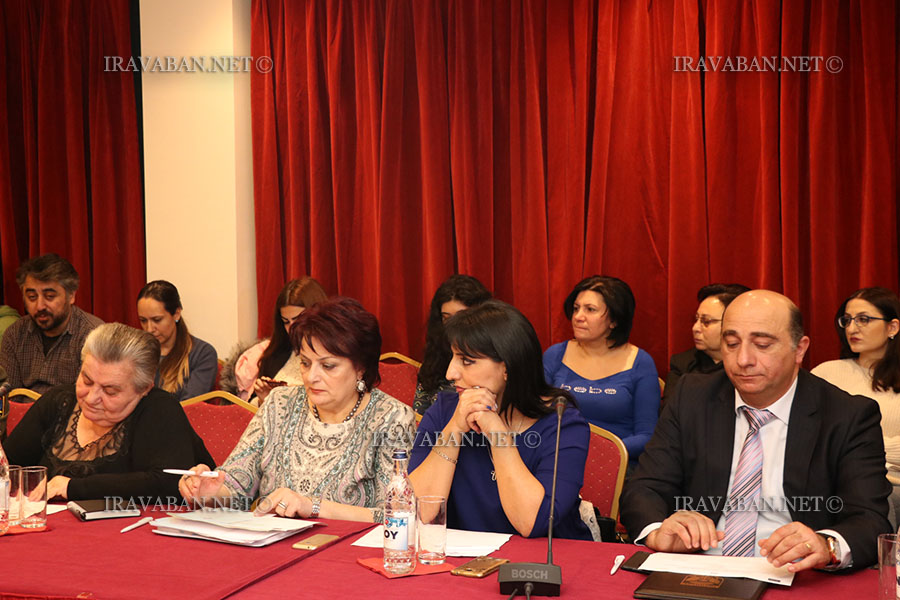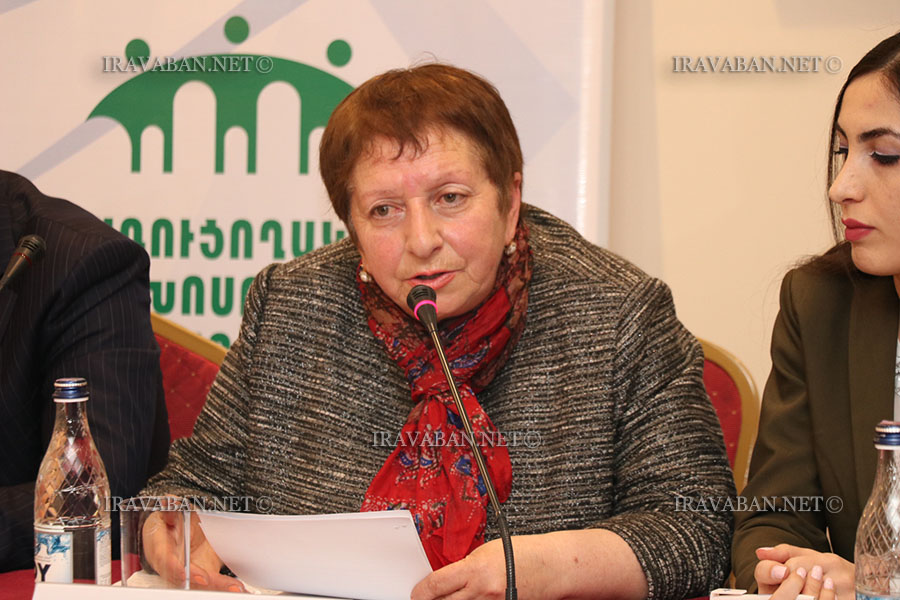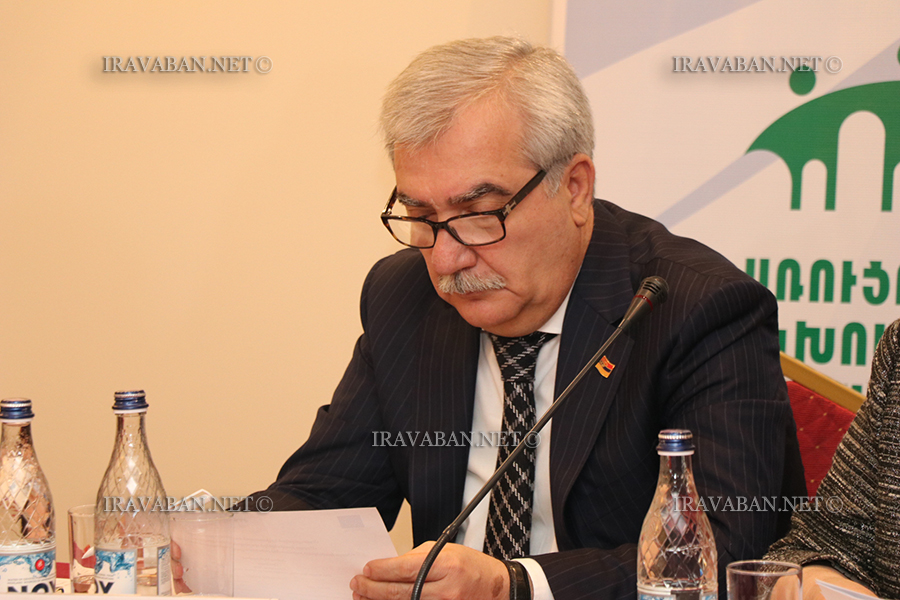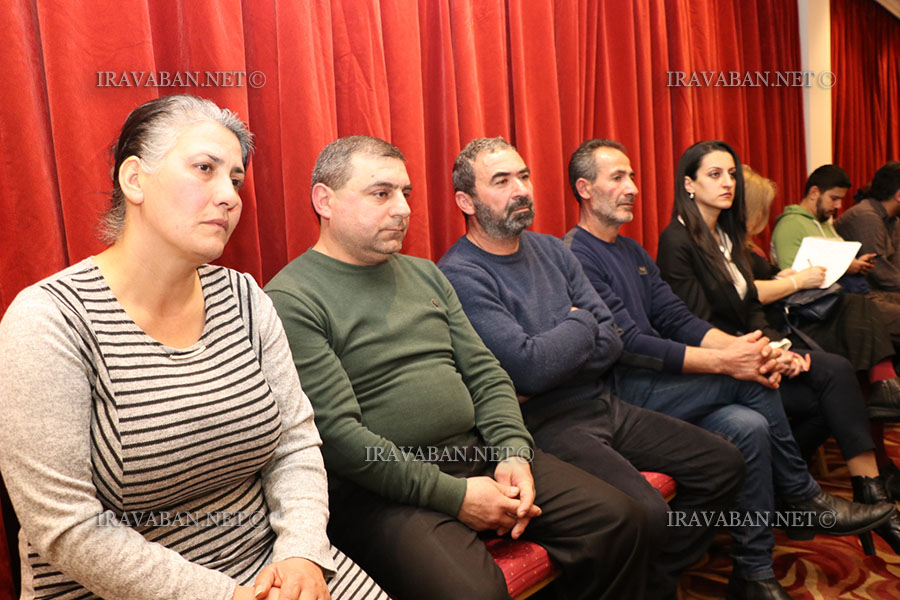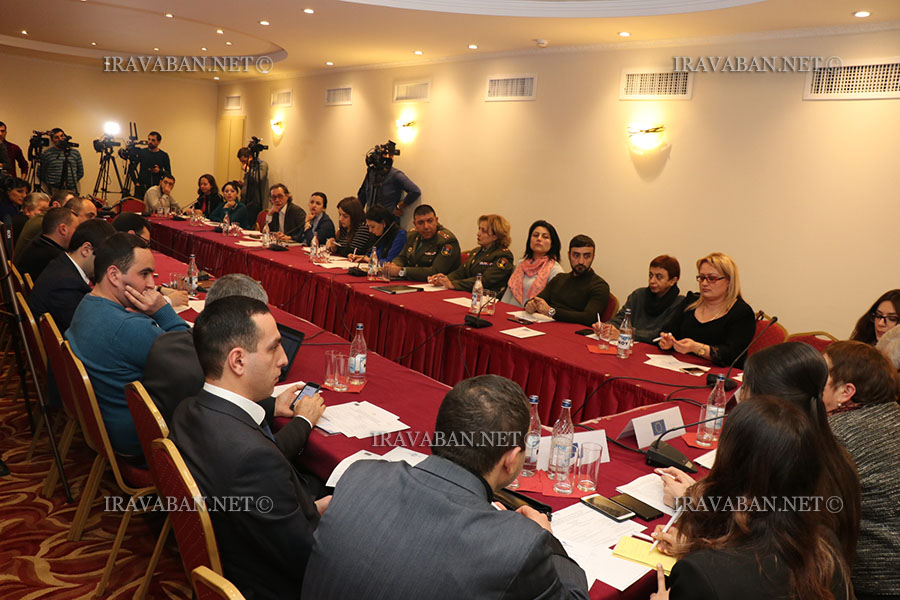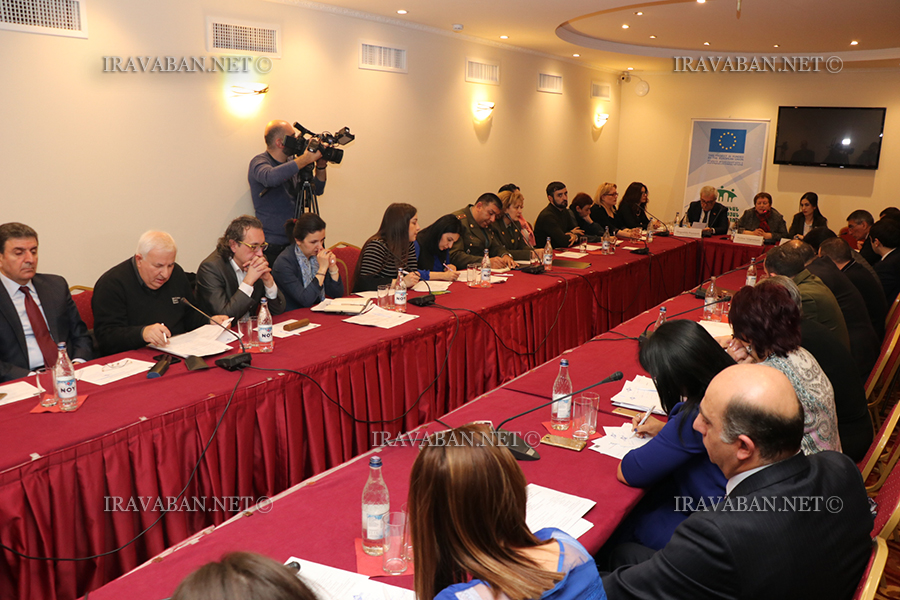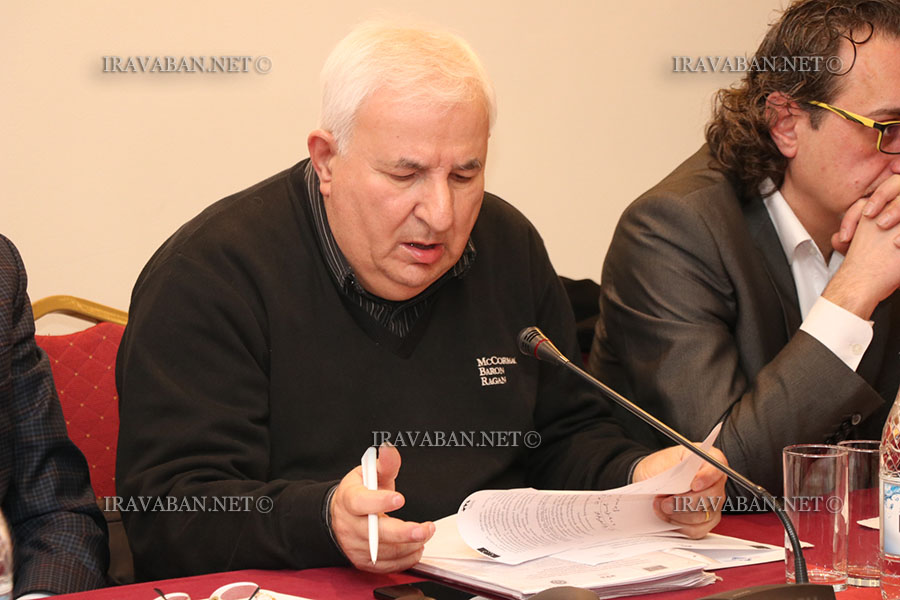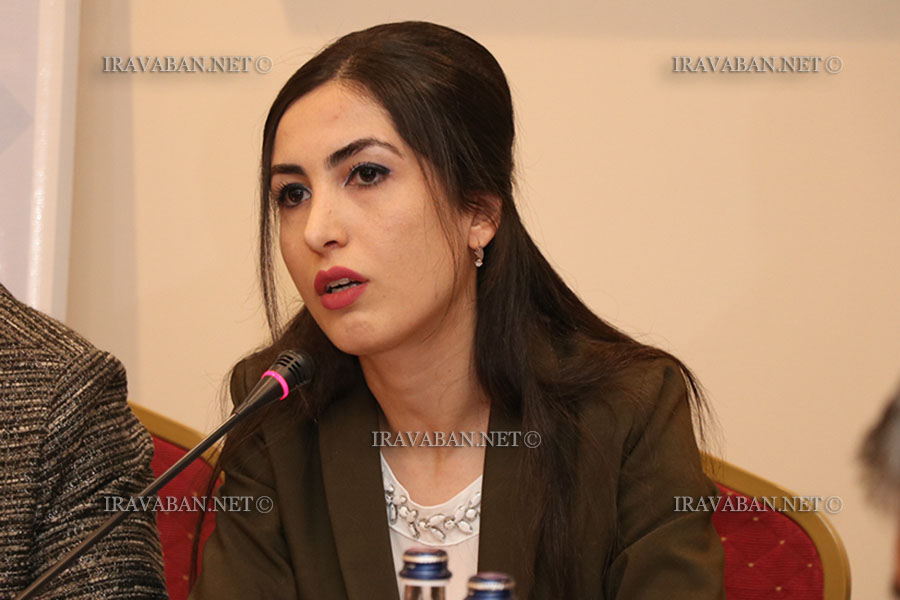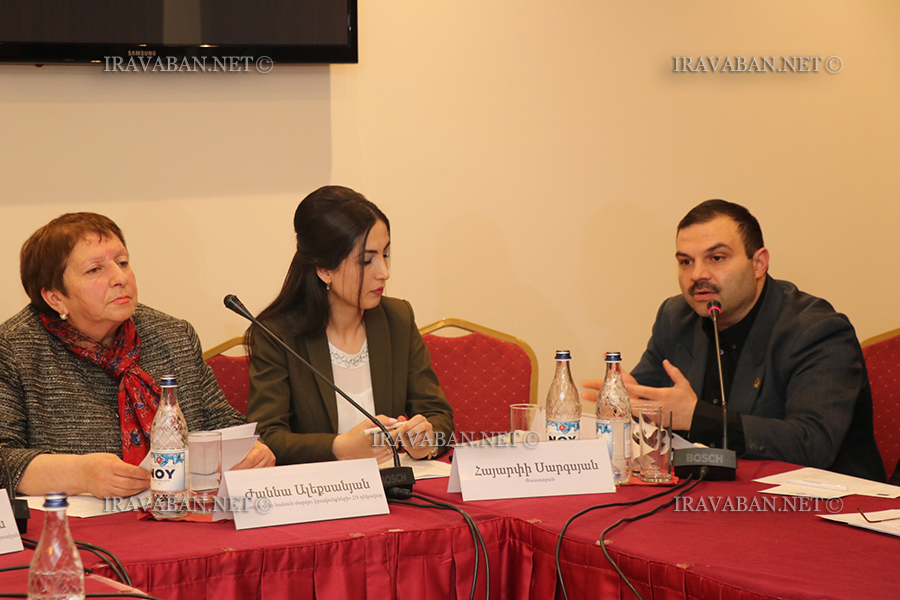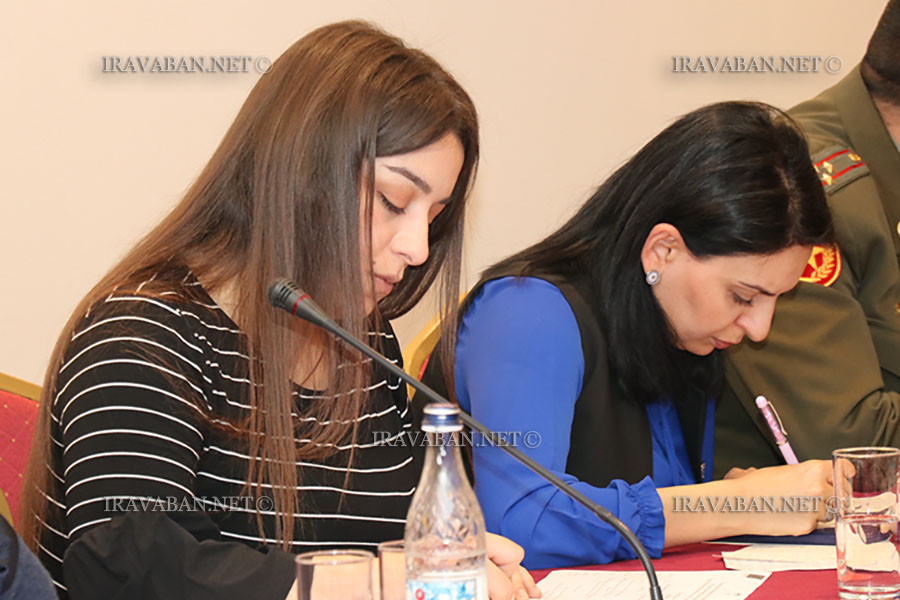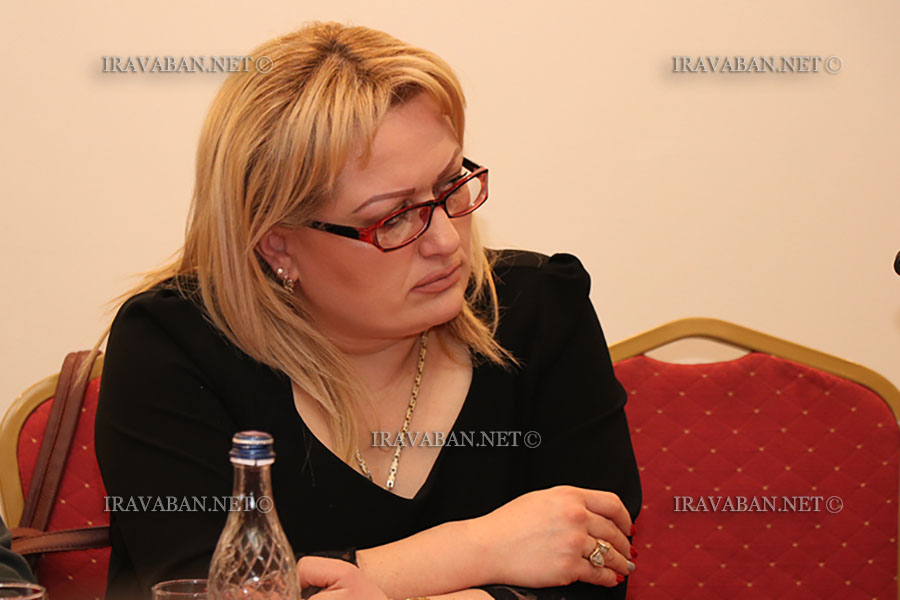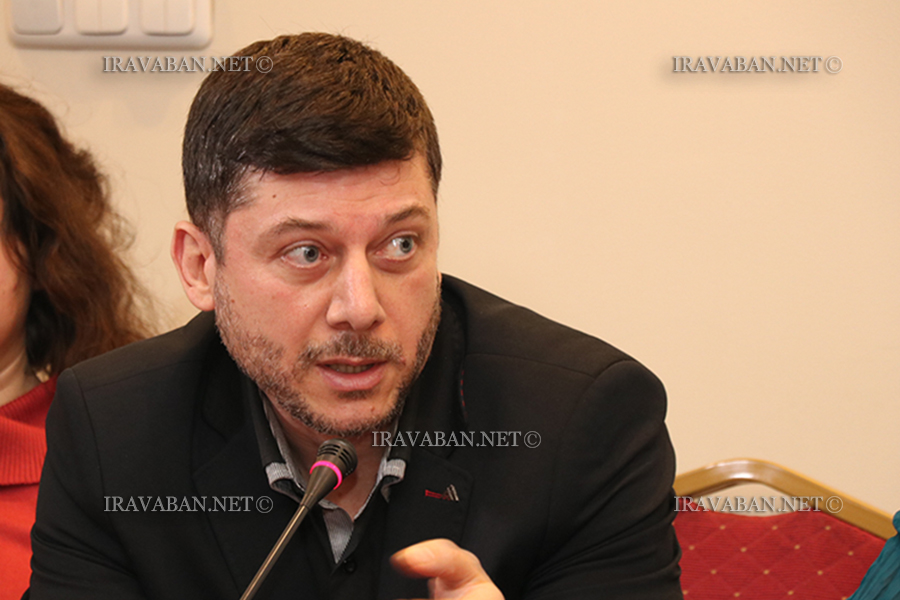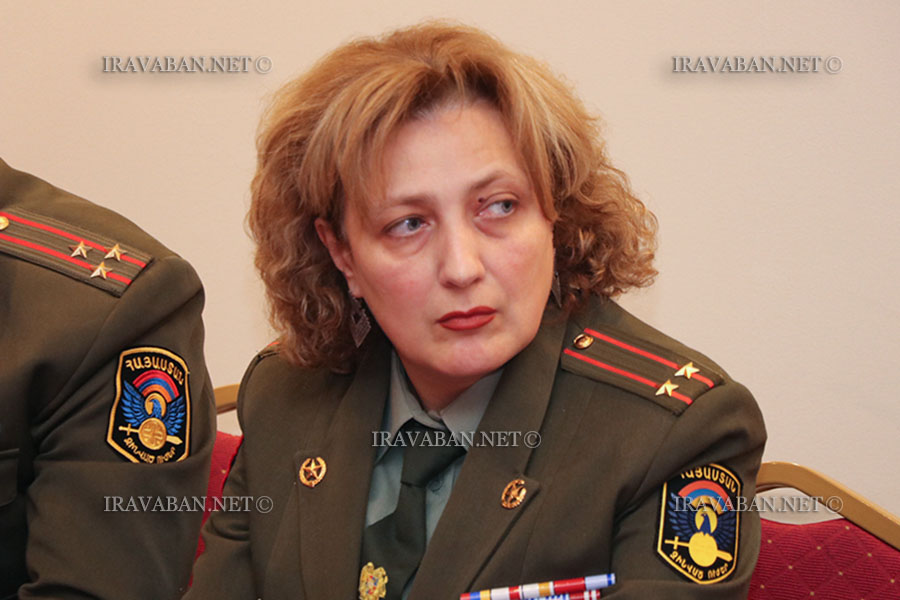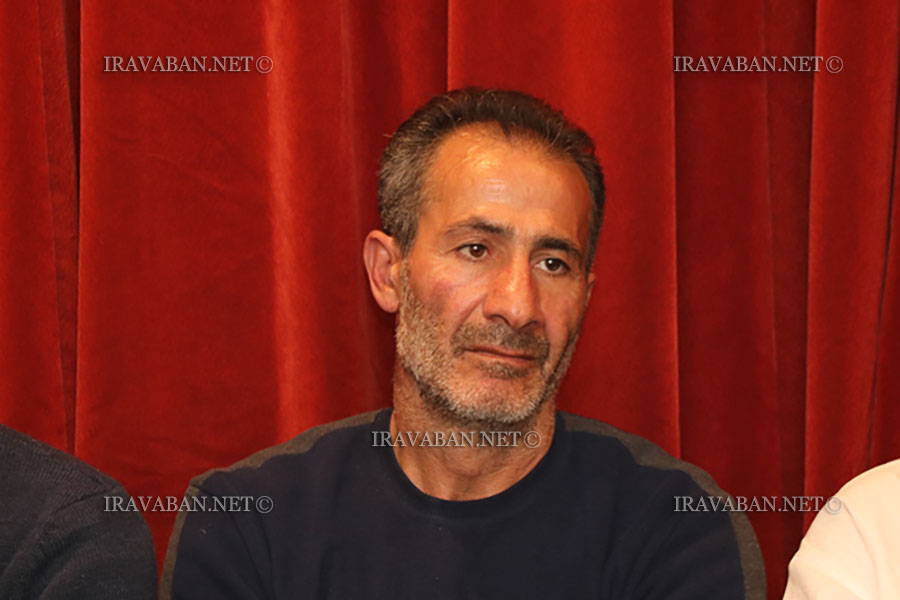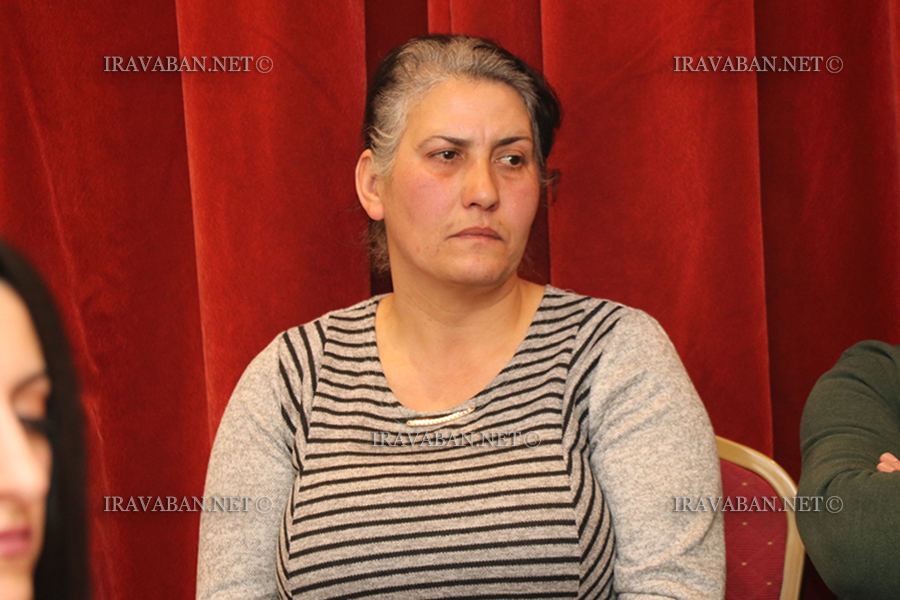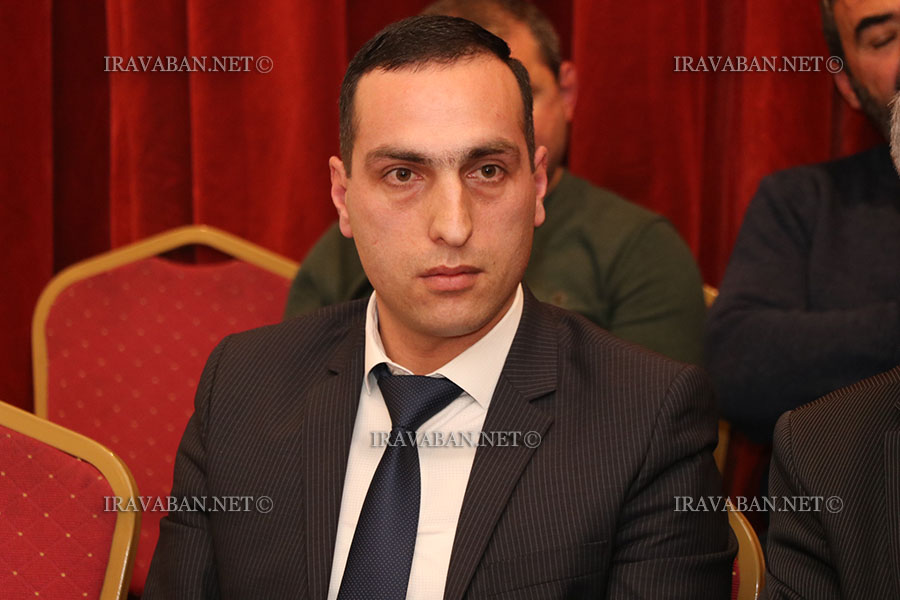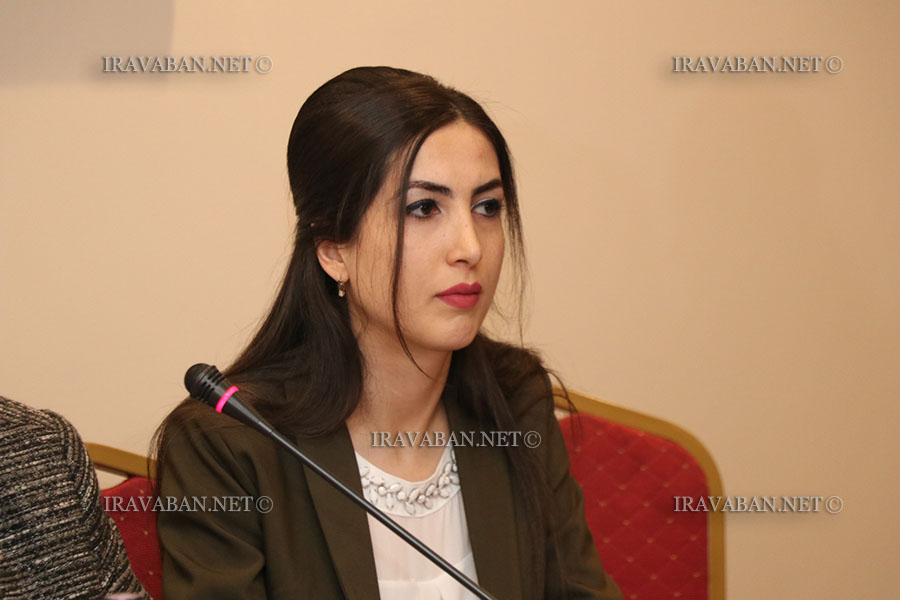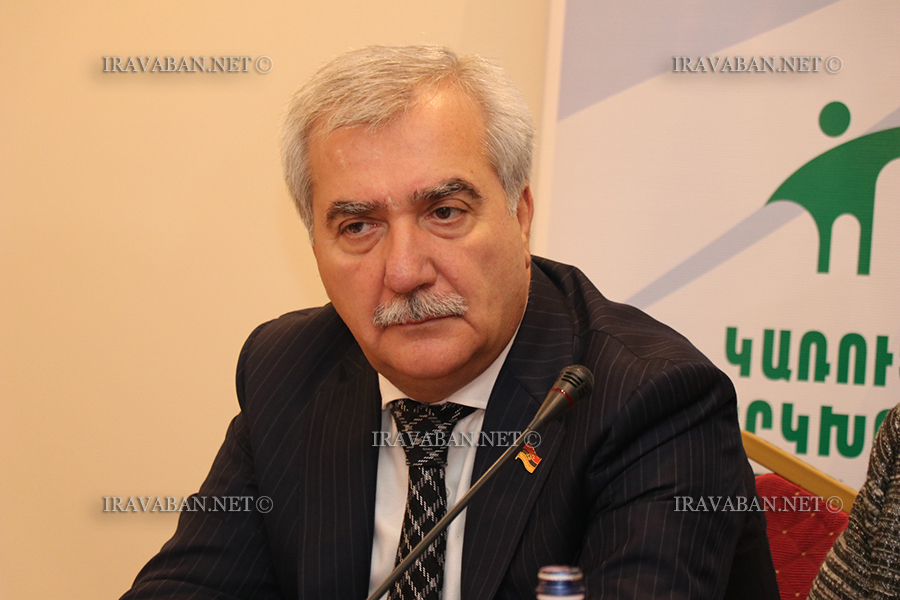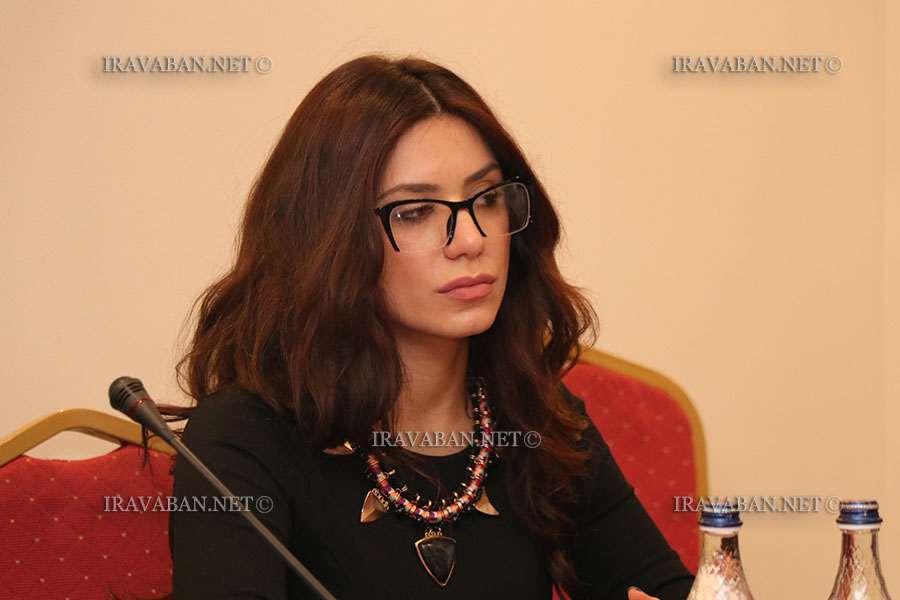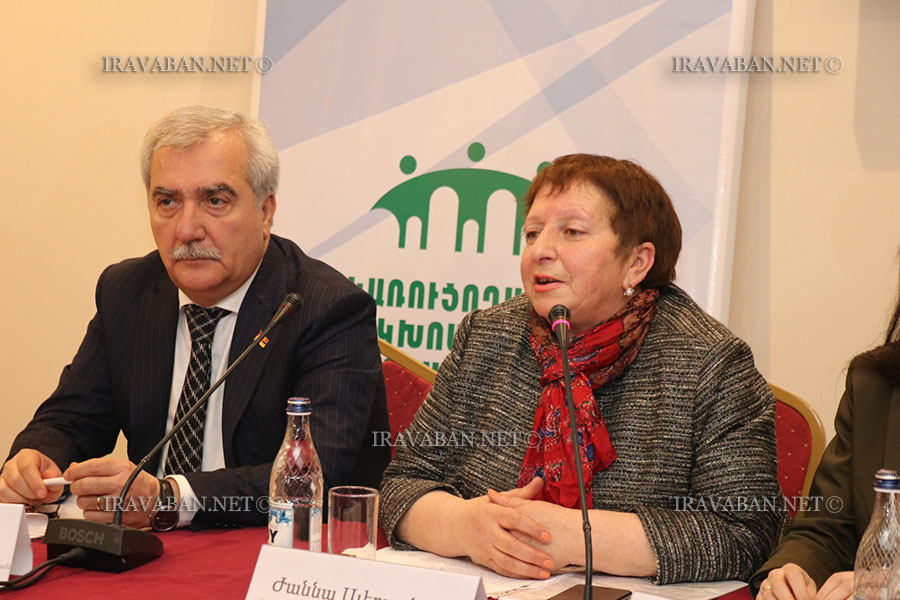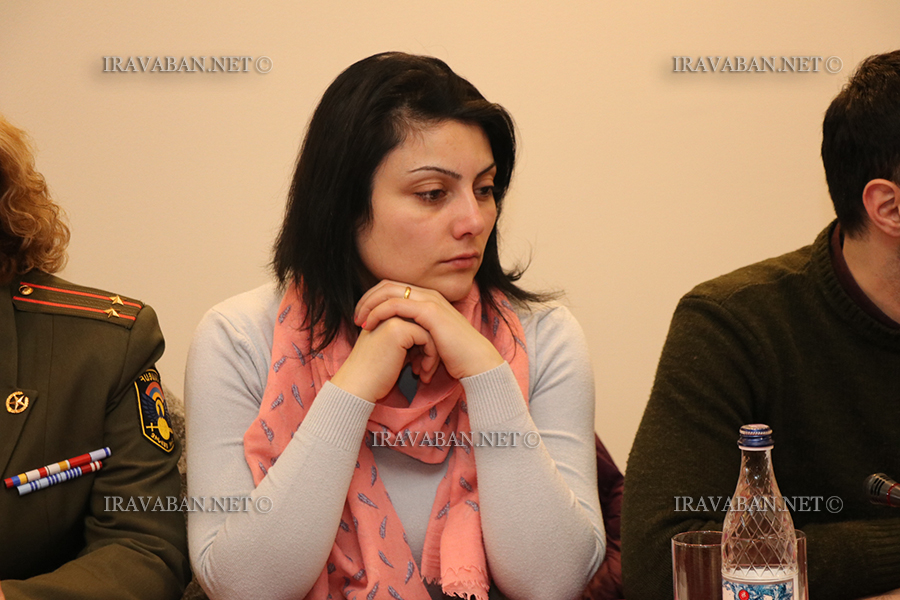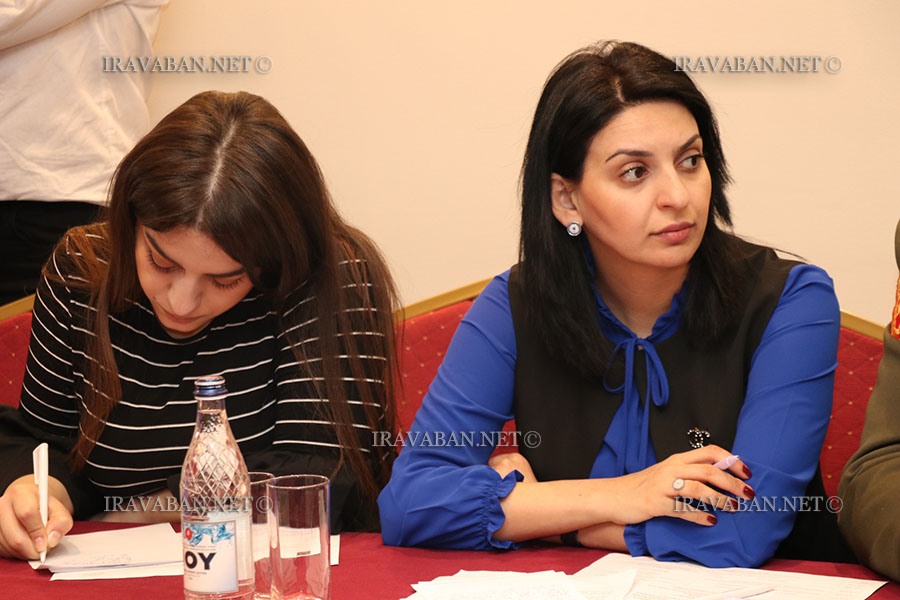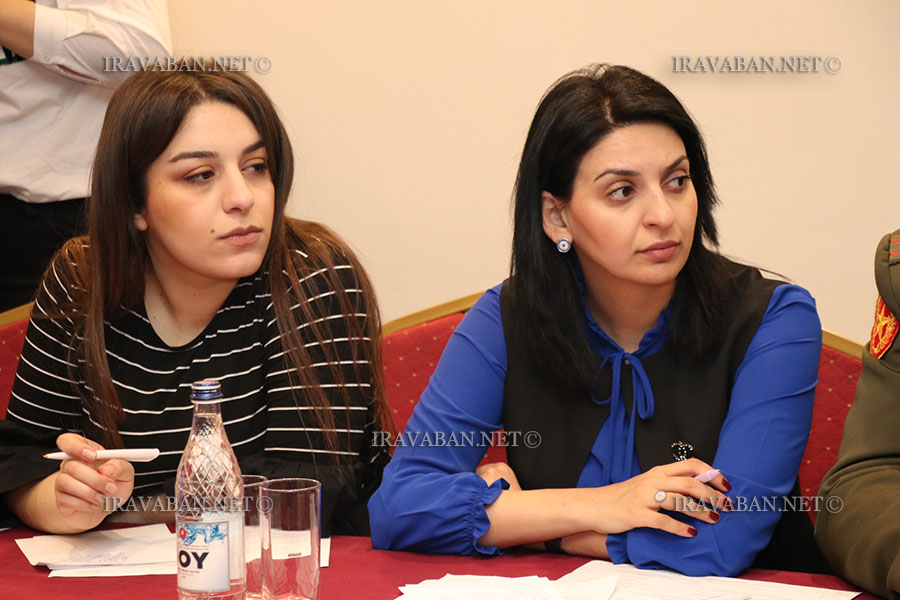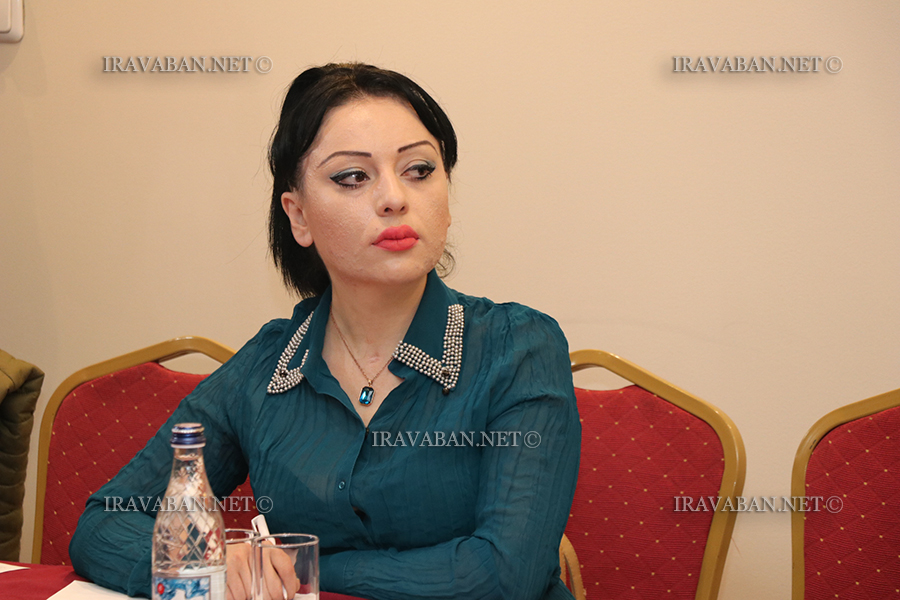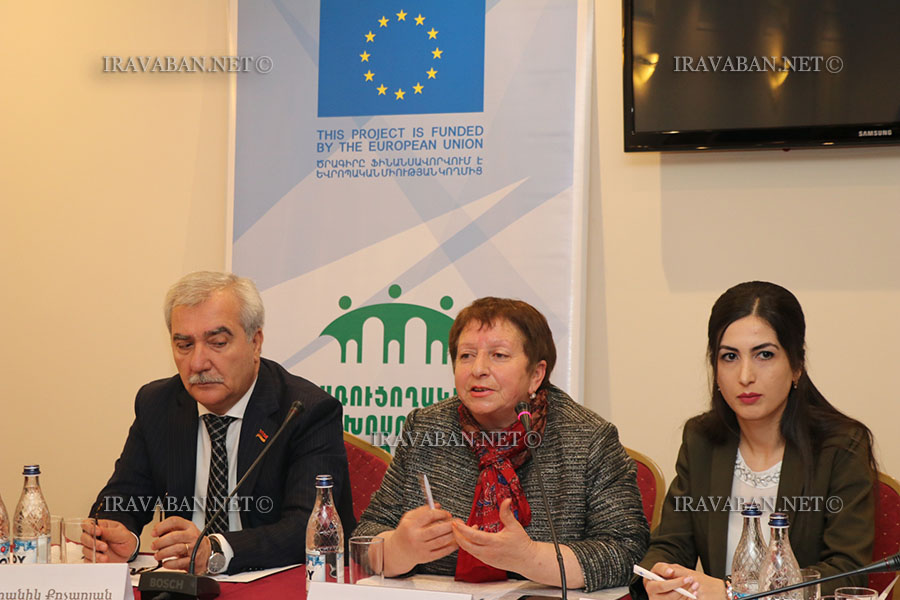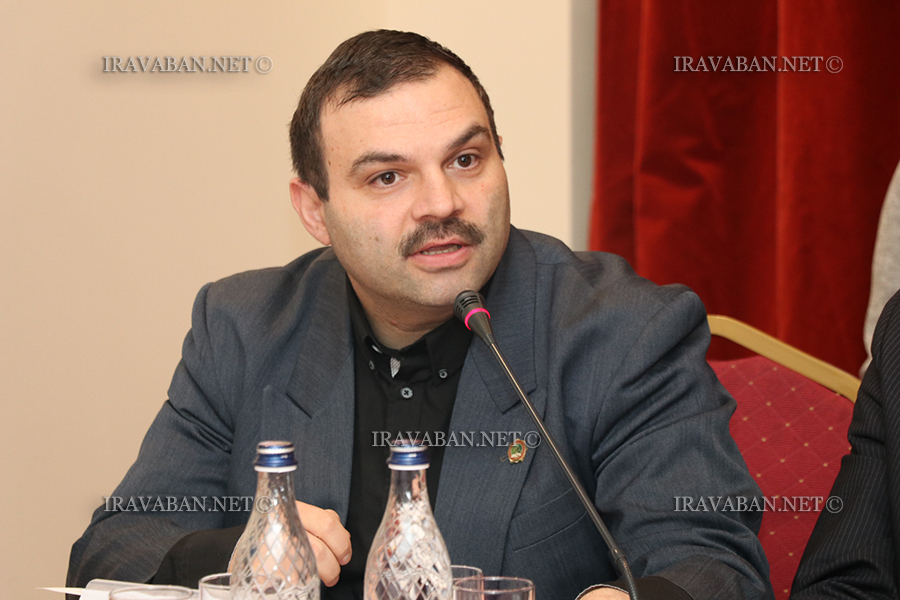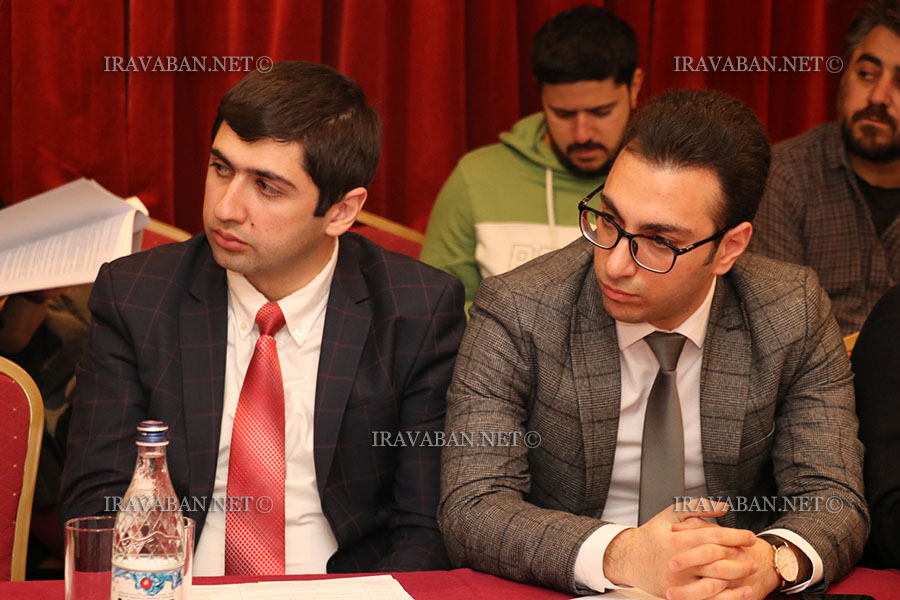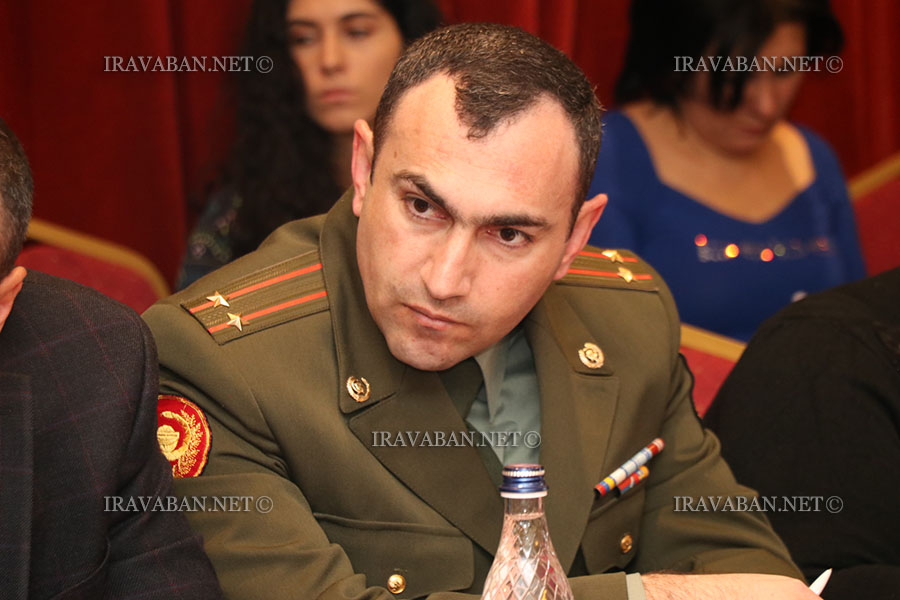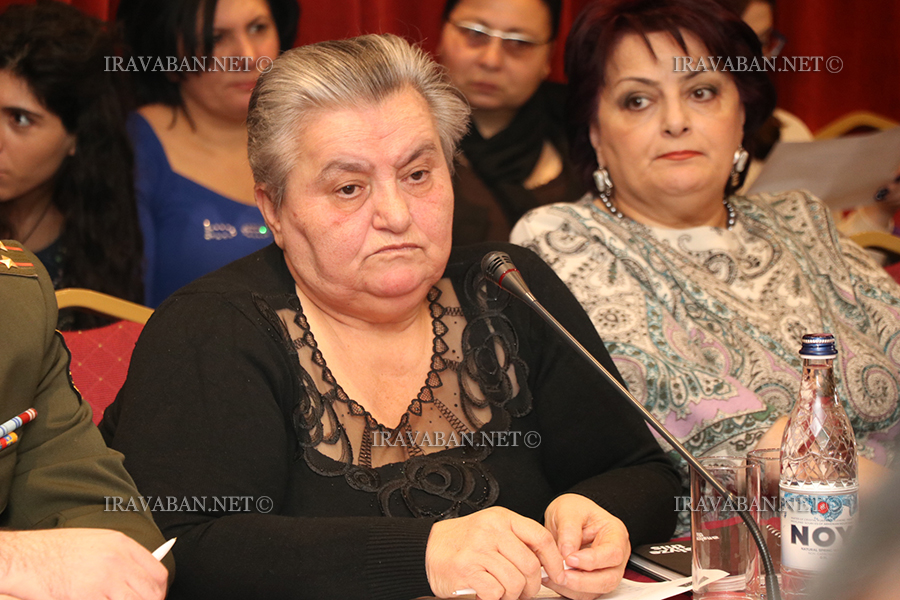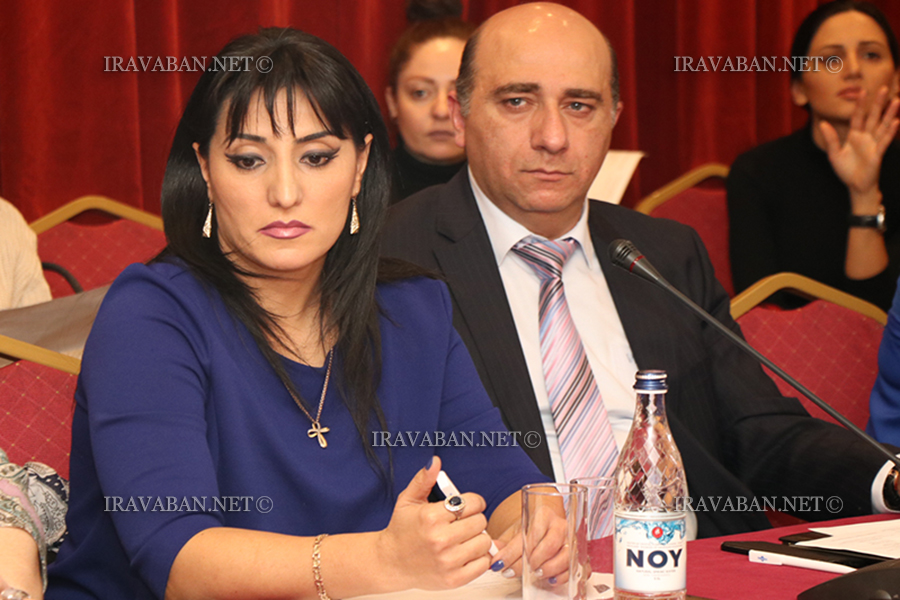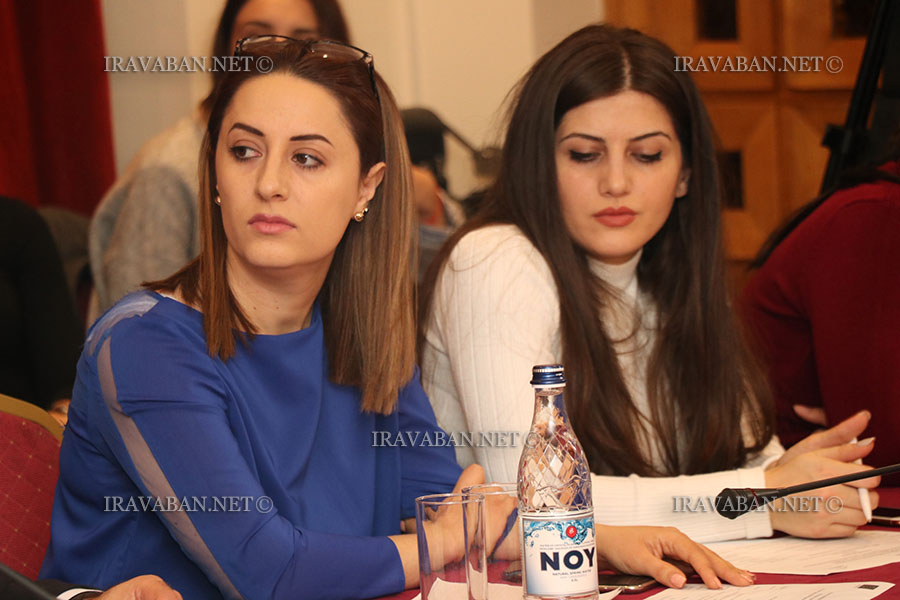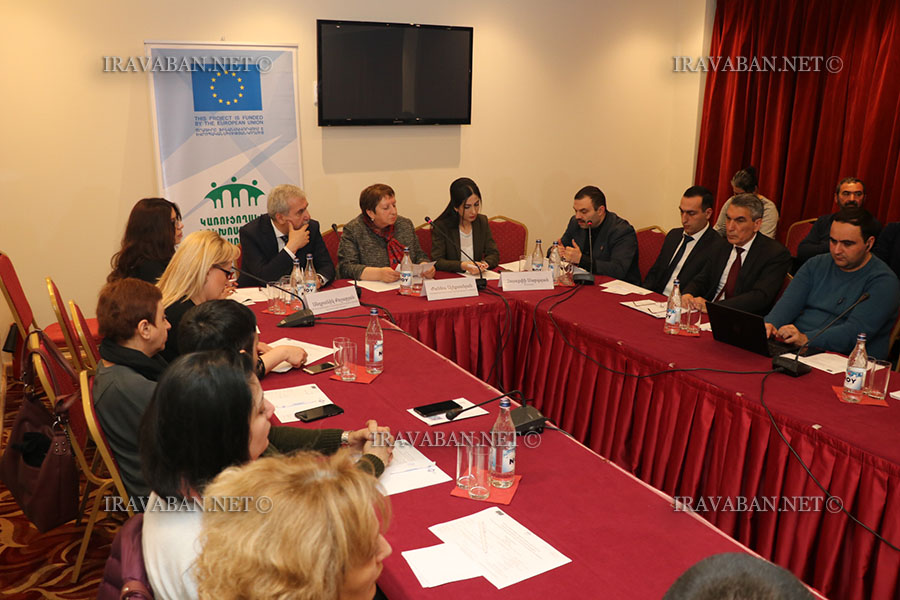On 27 February 2019, an assembly of the Human Rights Protection Coalition created in the scope of the sub-grant project titled “Human Rights: Monitoring and Publicity” funded by the “Commitment to Constructive Dialogue” project implemented with the support of the European Union. The topic of the meeting was “Human Rights Violations in the Army and Their Prevention Mechanisms.”
Among the participants were representatives from civil society organisations, the Investigative Committee, the Security Council, the Ministry of Defense, the Military Police, and the Military Prosecution.
Zhanna Aleksanyan, the President of the “Journalists for Human Rights” NGO, mentioned in her speech that it has been a while since similar discussions had been organised and that the goal of the round table-discussion was to find common ground for cooperation with the system of defense. “I expect an active and frank discussion. We voice and criticise many problems but we do that to heal our army, as well as for the security of our army, our soldiers’ life and health. Thus, I want our criticism to be accepted more easily. It must become understandable that is done for any conscript summoned to serve in the army,” noted Ms. Aleksanyan.
Marat Atovmyan, the Mentors Group Coordinator of the “Commitment to Constructive Dialogue” project, the Justice and Related Sectors Mentor, presented the project and noted that the topic is up-to-date and concerns everyone. He said, “In closed systems, the state is responsible for ensuring human rights protection. However, the state is not the only entity that has work to do in this field and there must also be close cooperation with the civil society. It is commendable that this project is implemented in close cooperation with the relevant agencies and I am confident that the constructive dialogue will result not only in the discovery of the existing problems, but also in the prevention of potential cases.”
Zhanna Aleksanyan also presented cases of murder and suicide in the armed forces over the past years, as well as the problems servicemen face when voicing their problems.
Attorney Hayarpi Sargsyan presented the violations committed during investigations of criminal military cases. In her words, violations start from the moment of conscription. “During conscription, there are many violations related to proper medical examination. Servicemen go on a medical examination after which they must be conscripted to the army, but their complaints are not registered, the respective documents are not properly examined and, as a result, the people with health issues and other healthy servicemen are equally engaged in military service. In such cases, commanders does not take this into account and say that if this person was conscripted, then he must serve. They don’t study and care about the documents. When servicemen don’t feel well during military service and start speaking up about their health issues, it is viewed as “simulation,”” Hayarpi Sargsyan said.
She used different examples to show the types of torture servicemen are subjected to sometimes. There has been a case when a serviceman kept in the Military Police was beat up, thrown on the floor, when they beat his teeth with a spoon and poured hot soup on his face, etc.
In Hayarpi Sargsyan’s words, there is a bad moral and psychological atmosphere in military units which has resulted in cases of self-injury. She also mentioned that servicemen are sometimes also sexually assaulted. For that, prior to beginning their military service, officers must go through special training and pass special checks which would show their sexual orientation.
Andranik Kocharyan, the Chairman of the permanent National Assembly Commission for Defense and Security Issues, after listening to the attorney’s clarifications, announced that he had prepared an entirely different speech but he would throw it away after those stories. “I had no idea, I thought I would hear here about the mechanisms to be used in today’s Armenia. Instead, I found myself in a horror film,” he said.
He expressed his support to any work in the field. “We will be open on all platforms. I announce that, starting from today, you can view the parliament and our commission as your partner in any case where our intervention is needed. …We will reach a point where even one soldier’s death will be a problem for the state and no one will try to hide a death. We saw how they hide it. They did it on March 1st, destroying the entire power system of the state. Hiding is a more monstrous crime than analysis of the real picture and punishment of the real guilty people,” Andranik Kocharyan said.
Arthur Adamyan, who is a colonel of the Ministry of Defense, noted that there is no need to create an impression that things are very bad in the army, using specific cases.
“The general staff of the armed forces has a very constructive mindset and takes every possible measure to defend human rights in the armed forces and study and put into action all the issues raised by non-governmental organisations,” he said.
Hovsep Khurshudyan, a representative of the “Free Citizen” Civic Initiatives Support Centre NGO, noted that clergymen’s activities military units must also be considered. He noted that it can also be a constitutional violation as there are people who are not followers of the Apostolic Church.
“When I served in the military unit as an officer, we’d reached a point where we did not give a single victim. This was done due to highly educated officers. There was also an atmosphere of brotherhood between the soldiers. That is to say, if you work with the officer correctly, if an officer is ready for work with soldiers, there will be no need to have clergymen, and we won’t have to violate the Constitution,” he said.
The “Commitment to Constructive Dialogue” project is implemented with the financial support of the European Union by a Consortium of civil society organisations, which are the Armenian Lawyers’ Association (lead organisation), Agora Central Europe (NGO based in the Czech Republic), the Armenian Centre for Democratic Education-CIVITAS, the International Centre for Human Development, the SME Cooperation Association and the Union of Communities of Armenia.
The project aims to enhance the influence of civil society organisations (CSOs) and CSO coalitions/networks on public policies in Armenia. This will allow organisations that are already working in sectoral coalitions to access additional resources, new groups of civil society experts to come together and encourage place their causes on the local and national policy agenda, to identify common concerns and priorities and approach government bodies with constructive and strategic policy engagement initiatives.
The project has provided sub-grants to 9 CSO coalitions that will be directed to the development of public policies and will have tangible results in the 9 target sectors selected within the project, which are: Justice, Human Rights, Public Finance Management, Business, Education, Social Sector (social inclusion of children with disabilities), Agriculture, Economy and Energy.

